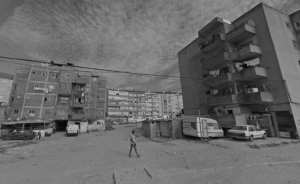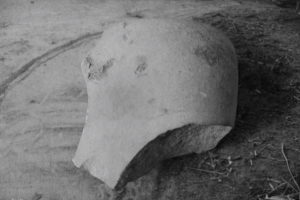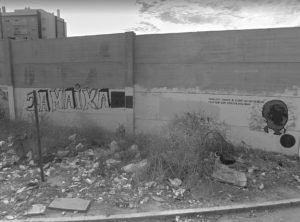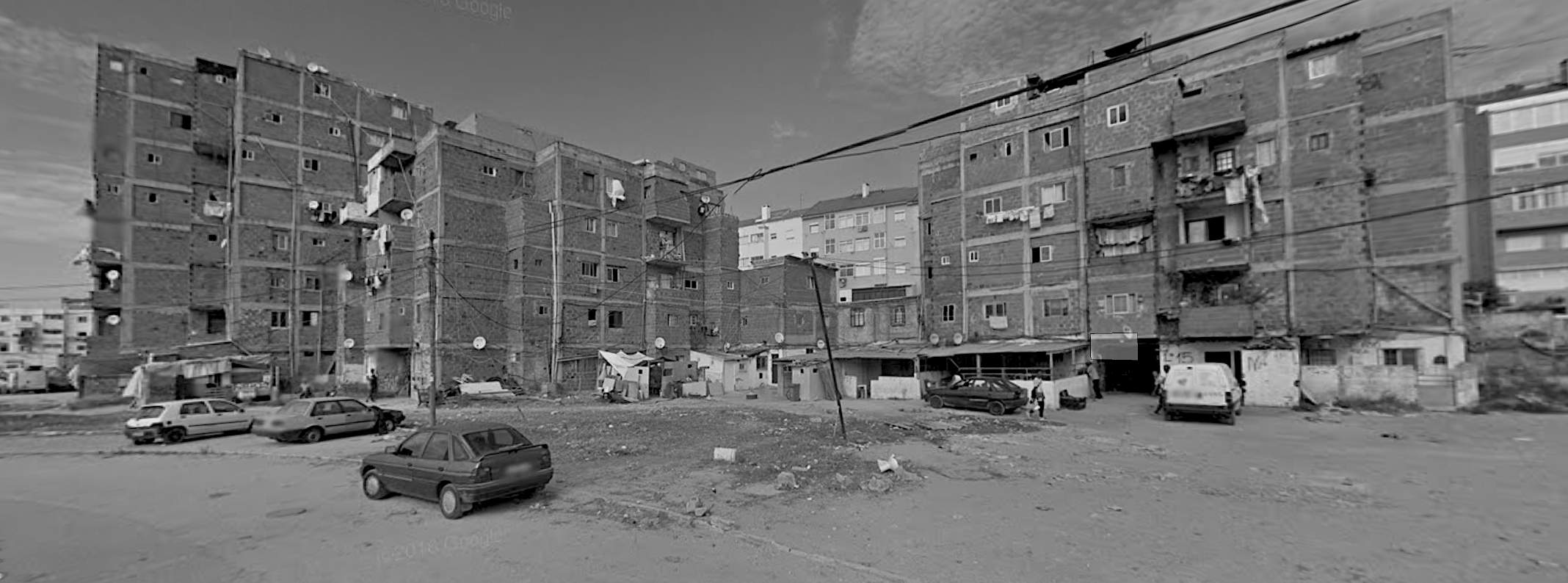This is the third and final part of a three-fold series which has been delving into slavery as a narrative of the past, from the standpoint of its (frequently overlooked) legacies in the present. I have been using these series as a space for reflections that have travelled back and forth between past and present, current and less contemporary events. The focus is mostly on Portugal; the Dutch context, however, is also considered. Portugal, where many of my social and cultural ways of thinking and being were first developed. The Netherlands, where for over four years my place in the world as a Portuguese-British, white, European female individual has been developed and inspired, but also challenged and at times disenchanted.
2019, almost 28 years in the making
A couple of months ago, a video in Portugal became viral. It showed police violence in one of the ghettoised communities on the outskirts of Lisbon, the Bairro da Jamaica. This violence stemmed from racial discrimination and it soon sparked demonstrations and protests that aimed to denounce racism in Portugal as engrained in its society, culture, politics and security forces. This event stirred a large debate on national news media (to my knowledge the most visible one in recent years), centred around issues of institutionalised racism, marginalisation and exclusion. It’s worth adding that already in 2016 (and not for the first time), the UN’s Committee on the Elimination of Racial Discrimination published a report that stated that it remains concerned with racism experienced in Portugal. [1]
Reading about this incident conjured many feelings in me – anger, disappointment, frustration. But surprise was not one of them. This wouldn’t have been the case some 4 years ago, when I moved to the Netherlands. A country where postcolonial discussions have for far longer been made visible and heard (which doesn’t mean work here is finished). In the final part of this series, I will travel between my earlier fascination about the past and how my understandings of Portugal’s colonial past and its present-day legacies have been moulded by my recent life experiences.

In this sense, this piece is an exploration of my reflexivity (and to a lesser extent here, my positionality) and how it affects and influences my thought processes and the research I carry out within the context of the Masters in Heritage and Memory Studies and elsewhere. These are issues very much linked to research ethics and politics. As Farhana Sultana explains in her essay, “reflexivity in research involves reflection on the self, process and representation” (2007, page 376). And “it is critical to pay attention to positionality, reflexivity, the production of knowledge and the power relations that are inherent in research processes in order to undertake ethical research” (2007, page 382) – and, I would add, self-critical processes of thought.
Back in the days
From an early age I was fascinated about the past – its stories, its people, its material remains. At the age of 12, I decided I wanted to become an archaeologist. This decision was to a great extent triggered by an event which occurred during my childhood, and that I still vividly remember – the discovery of a prehistoric stone tool, somewhere in Portugal.
As I discussed in Part I of this blog series, Portugal lives in denial about its colonial past. At the same time, it glorifies what it calls the “Age of Discoveries”. Having been brought up in Portugal, I too was taught history from the perspective of the dominant narrative. I too grew up to look up (and back) at the Discoveries as a period in Portuguese history to feel proud of. A feeling which was probably – now retrospectively thinking – enhanced by my fascination of all things past. I can still remember (cringe alert!) feeling a sense of pride when telling people that during the fifteenth and sixteenth centuries, the Portuguese were exploring and “finding” parts of the world up until then unknown to the rest of Europe.

This feeling and my views on Portugal’s “oh so glorious past” started changing very fast when I moved to the Netherlands. I started to become exposed to many debates on Dutch news media and television programs surrounding the country’s colonial past. One example was the debate surrounding Black Pete (or Zwarte Piet). The more I read and heard about these debates, the more parallels I would find with Portugal. And consequently, the more questions I would raise about the way Portugal deals with its colonial past and with the descendants of its former colonies. I started reading more and more about these issues, and started to follow debates surrounding topics such as racism in Portugal and the existing (yet limited) criticism of the way Portugal handles its colonial and slavery past.
Loss of innocence
The more I learnt, the more I felt disappointed, guilty and ashamed. But especially angry. I felt angry to have been taught what I now view as a politically dominant, exclusionary, one-sided and violent view and treatment of Portugal’s horrific history of colonialism and slavery. I felt angry to realise that certain key aspects of Portugal’s past had been selectively and violently silenced – a political process that comes all too close to the processes described by Michel-Rolph Trouillot’s ‘Silencing the Past‘. The more I read, the more I understood how this past lives on in the present, through the ways in which we are in the world (let’s not forget about Gloria Wekker’s ‘cultural archive‘ concept) and in the forms of representing that past. I became very much aware of the lack of innocence within the production of history and heritage, and the power of narratives of the past to foster social, cultural and political exclusion.
All this triggered in me a sense of responsibility for trying to understand Portugal, with a special focus on the representations of its colonial past and especially on the current day repercussions of this past. It would be an illusion and dishonest to think that I can separate my life experiences from my thoughts. Rather, I take these self-critical feelings with me when reflecting, interpreting and communicating about Portugal and the injustices which occur today. Injustices which in part stem from a lack of knowledge and understanding about our colonial ghosts.

Further reading:
“Reflexivity, Positionality and Participatory Ethics: Negotiating Fieldwork Dilemmas in International Research”, ACME 6/3, pages 374-385 – F. Sultana, 2007.
Silencing the Past. Power and the Production of History – Michel-Rolph Trouillot, 2015. Boston: Beacon Press.
Photos of Life in ‘Portugal’s Toughest Neighorhood’ in Vice – José Ferreira, 2019. Article and photographs accessible here.
[1]The UN has made repeated recommendations for Portugal to adopt certain measures aimed at its population of African descent. One such highly recommended measure is for Portugal to start collecting indicators on ethnicity, something it has never done because for long politicians argued that listing individual ethnicity constitutes a form of discrimination. However, without this data it remains impossible to track rates of educational achievement, social mobility, incarceration, etc. Albeit not the only factor, this opposition to start collecting indicators on ethnicity has been allowing Portugal to remain ignorant of its embedded problems with social inequality and racial discrimination. Since the moment I first wrote this piece a few weeks ago to today, this situation has fortunately changed – the working group created by the Portuguese government in 2018 to discuss and research this issue and the Portuguese population (78%, according to a survey conducted by the Universidade Católica) are in favour of adding a question (of optional answer) about ethnicity in the population census of 2021. This marks an important step in Portugal in the acknowledgement that racism is a structural issue, and towards an attempt to tackle this problem.
